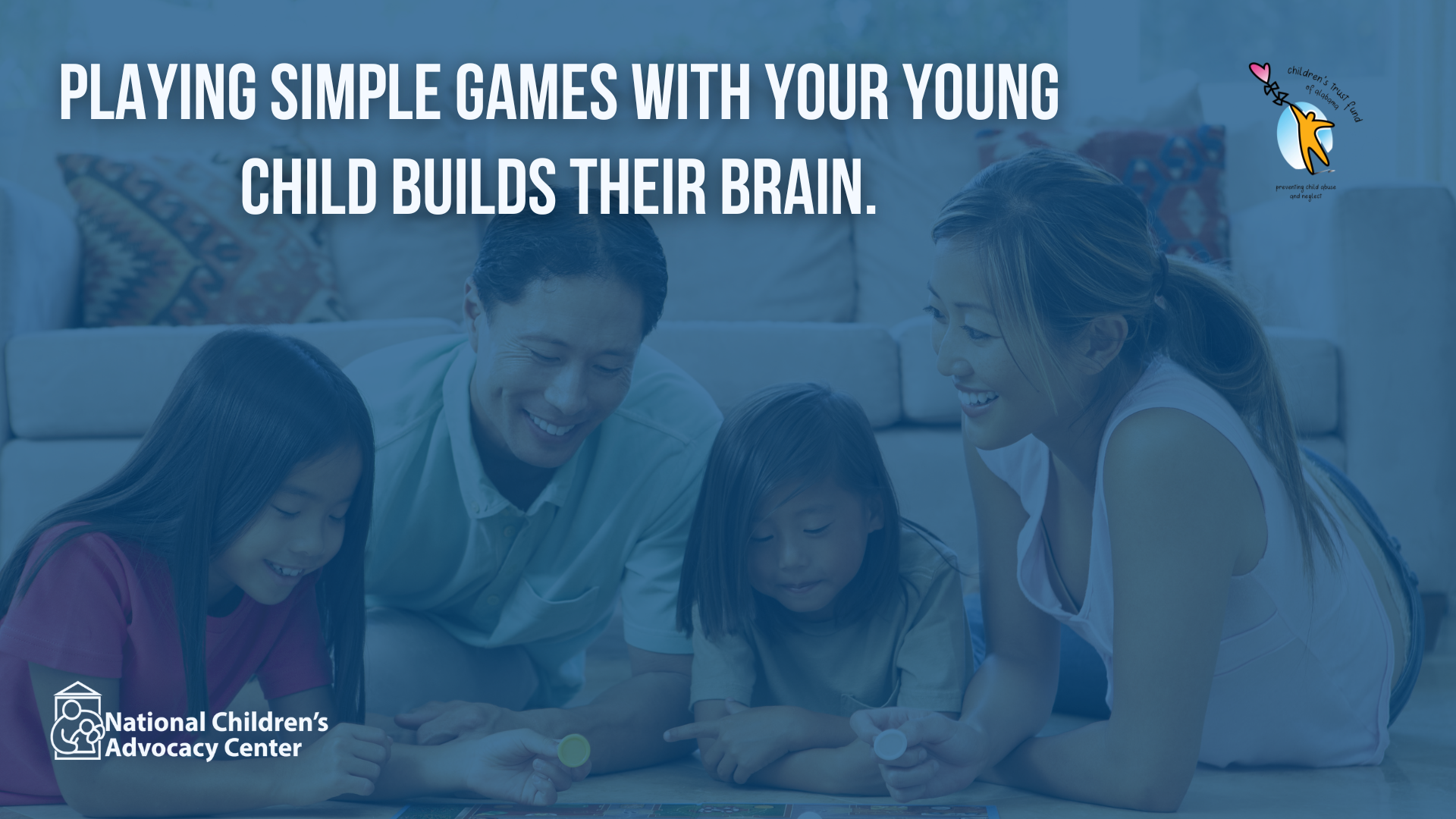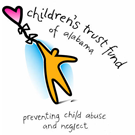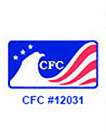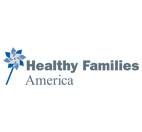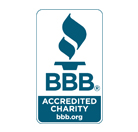Protective Factors Social Media Toolkit Series
This toolkit, Parenting Tips: Nurturing and Attachment, is the first of six child abuse and neglect prevention Protective Factors Social Media Toolkits developed by the National Children’s Advocacy Center. These toolkits are based on the Strengthening Families™ Protective Factor Framework (1) and the Protective Factors Conversation Guides for Partnering with Families (2).
Toolkits include tips and questions for parents and caregivers to encourage conversations that support positive parenting practices and promote social norms that help protect children from abuse and neglect.
Each toolkit is centered around one of the following protective factors:
- Nurturing and attachment
- Knowledge of parenting and child development
- Parental resilience
- Social connections
- Concrete supports in times of need
- Social and emotional competence of children
References:
1. Children’s Trust Fund Alliance. (2022). Protective factors. https://ctfalliance.org/protective-factors/
2. Administration for Children and Families Administration on Children, Youth and Families. (2021). Protective Factors – Conversations Guides for Partnering with Families. In 2021/2022 Prevention Resource Guide (pp. 50-75). Washington, DC: Author.
Instructions
For Text: Highlight text. While text is highlighted, right click and choose copy. Navigate to social media page and in space intended for text right click the mouse and choose paste.
CLICK HERE TO DOWNLOAD IMAGES. Save file to computer. Upload video to social media page from saved location.
Suggested Text
Image
Rain falls on every family. Protective factors can act like an umbrella to keep your family strong even when life is challenging. It’s okay to ask for help. Reach out to family and friends you trust. In Alabama, call the Parenting Assistance Line at 866-962-3030. Anywhere in the U.S. call 2-1-1 for resources such as housing, food, health care and more.
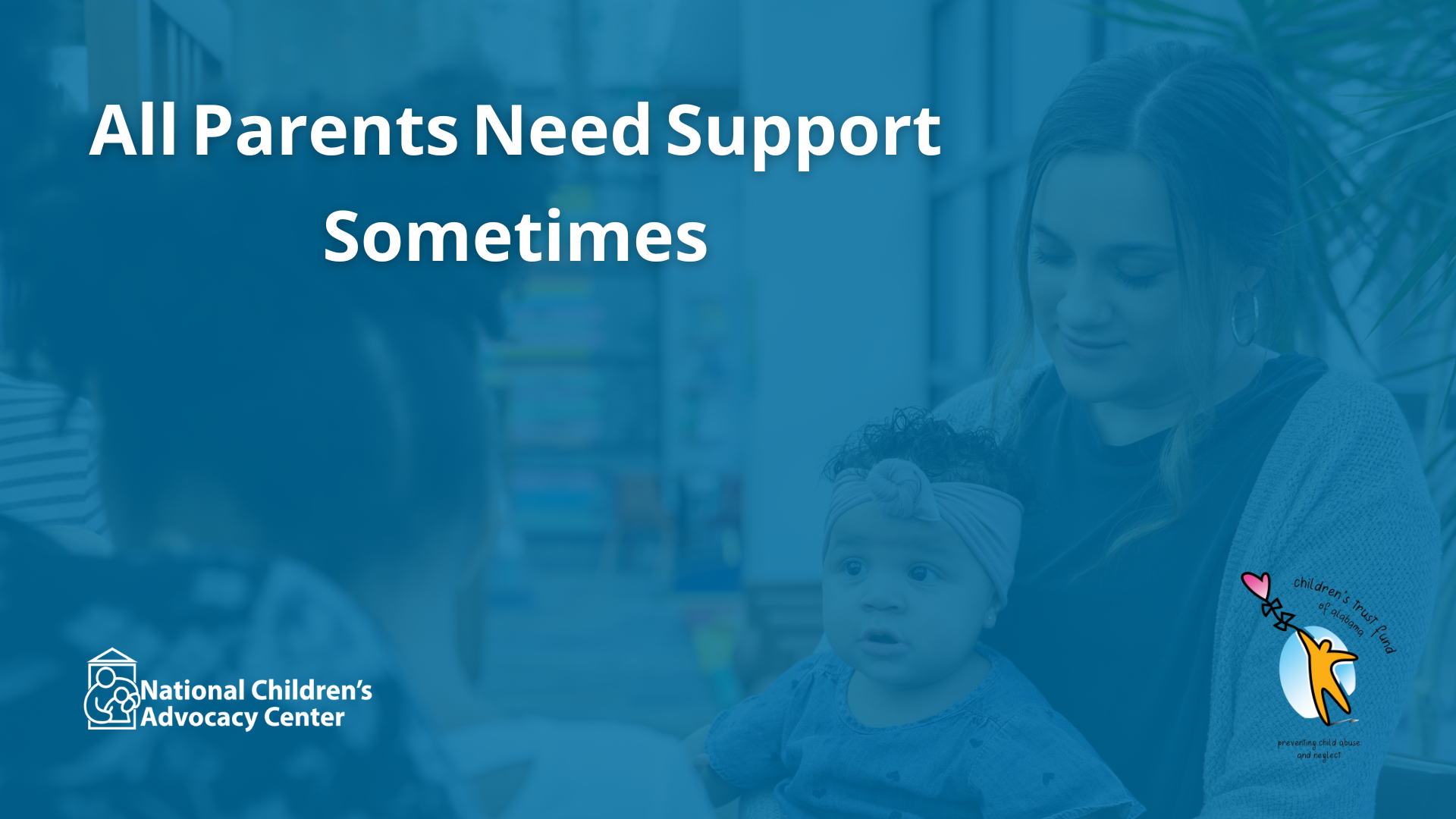
Bonding with caring adults can help your baby to have better grades, stronger friendships, healthier behaviors, and more resilience as they grow. More resilience means they’ll bounce back more easily during tough times later in life.
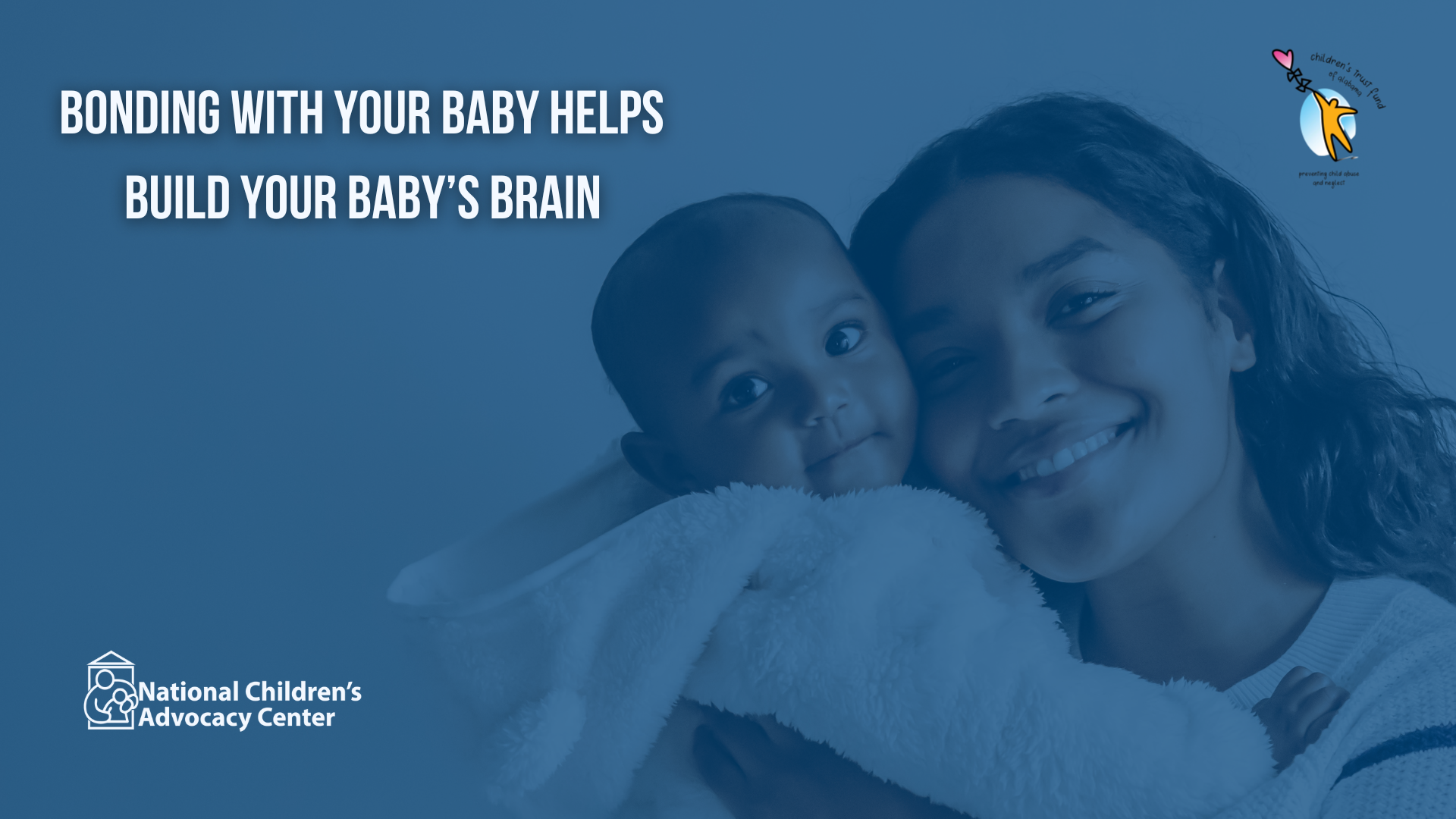
You can nurture your child as they grow by listening to them, being involved in your child’s activities, knowing about their interests and friends, and being willing to stand up for them and other children when necessary.
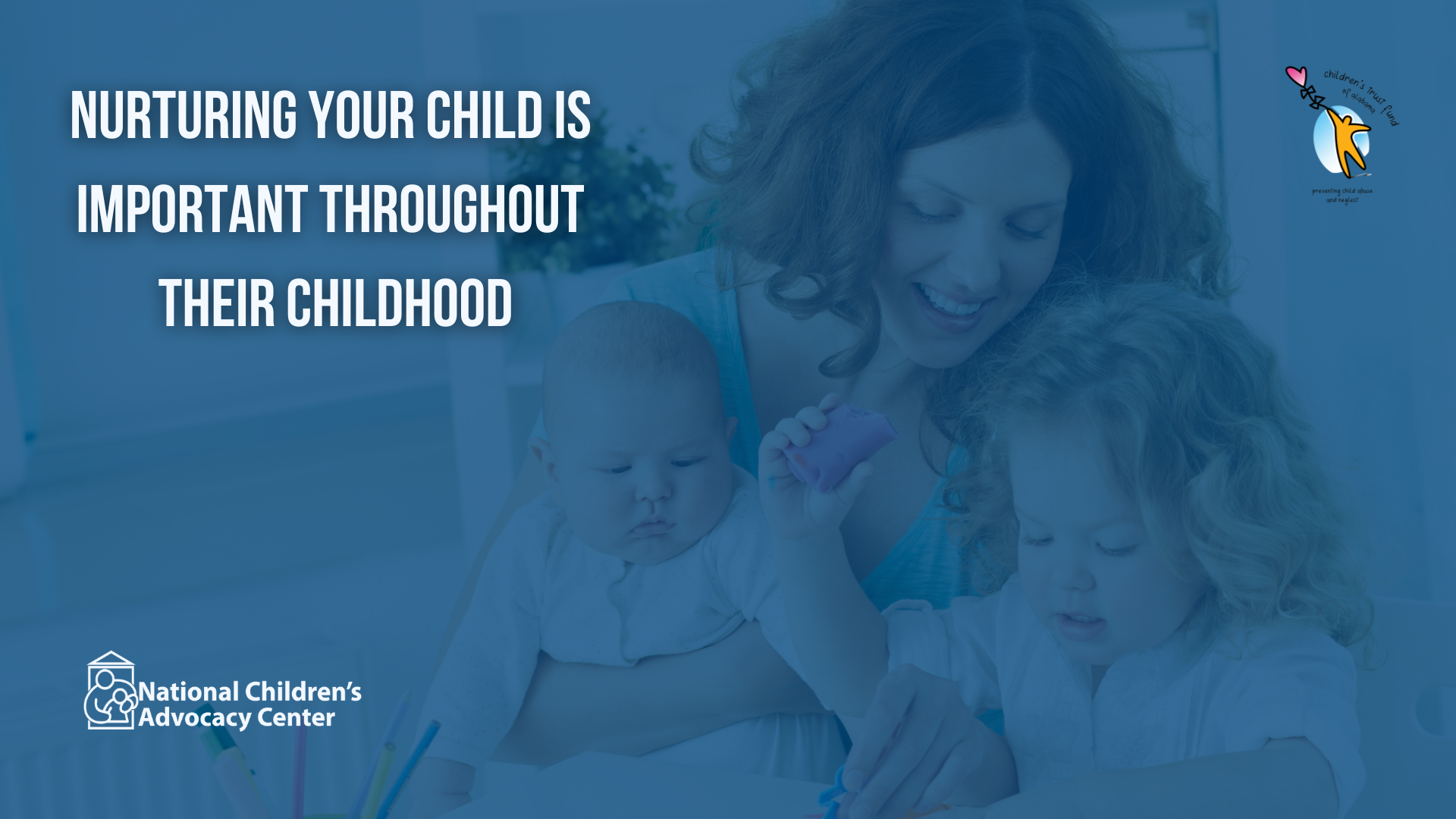
Trauma and stress can affect your ability to nurture your child. Stress can make it harder to focus on bonding. Showing your child love makes a difference. What do you do to care for yourself so that you can still show love to your children?
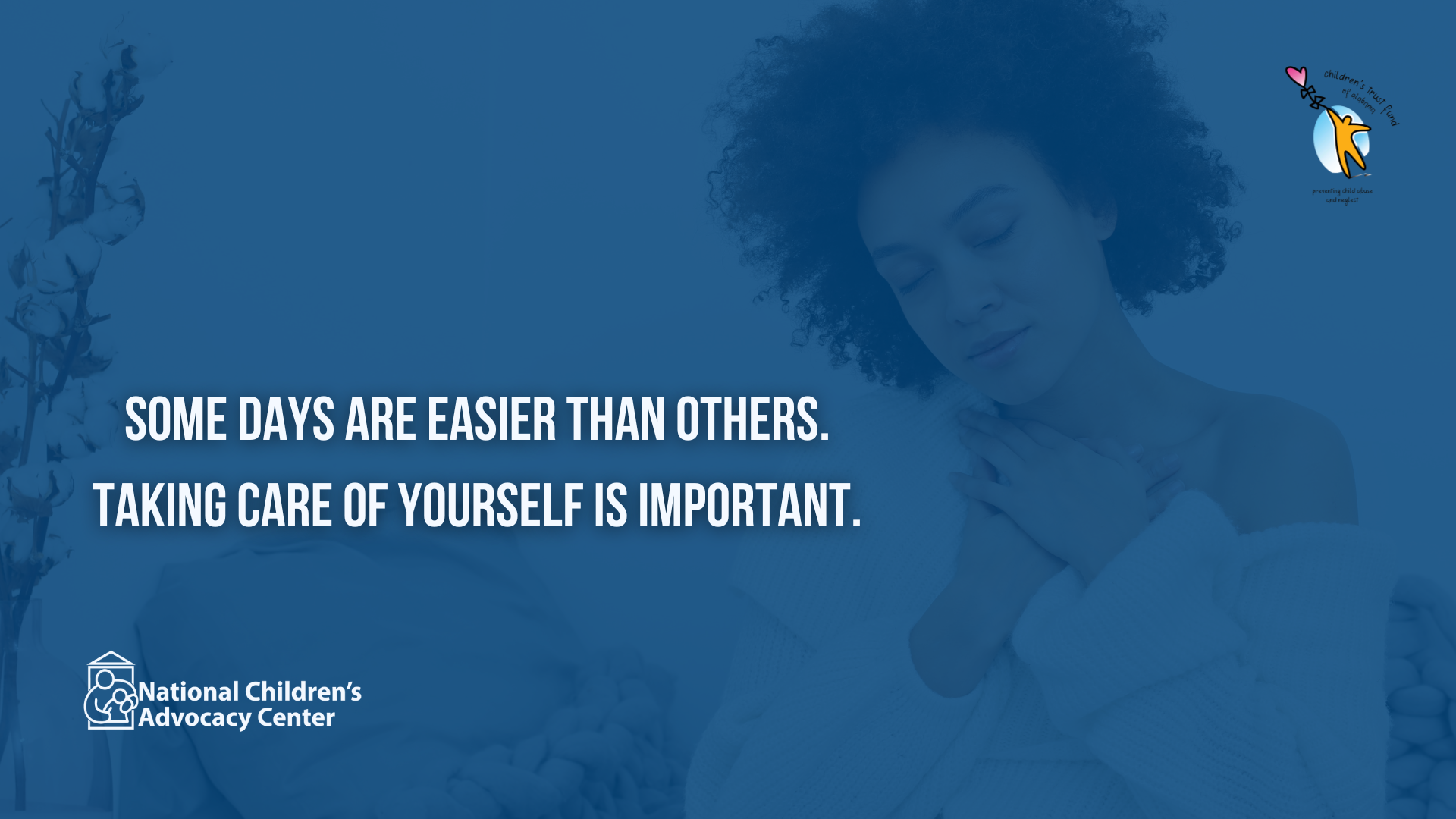
How our parents showed love to us when we were children can affect how we show love to our children. What are some ways you like to show love to your children? Check out the NCAC Family Norms Sheet to explore family affection and other topics: https://www.nationalcac.org/wp-content/uploads/2020/12/Family-Norms-Discussion-Sheet-1.pdf
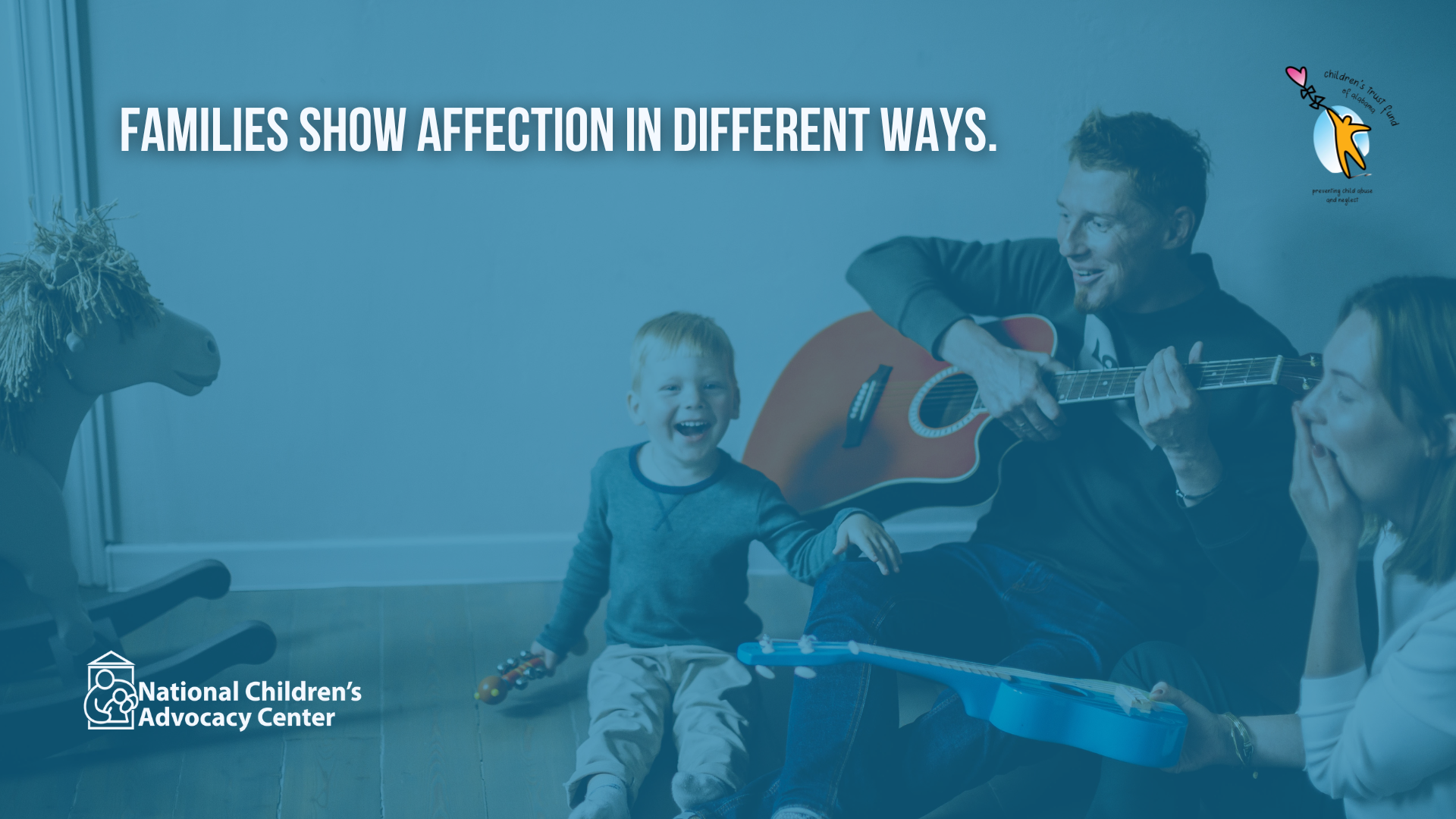
Did you know that the love you show for your children actually grows their brains and makes them smarter? Little things every day add up.
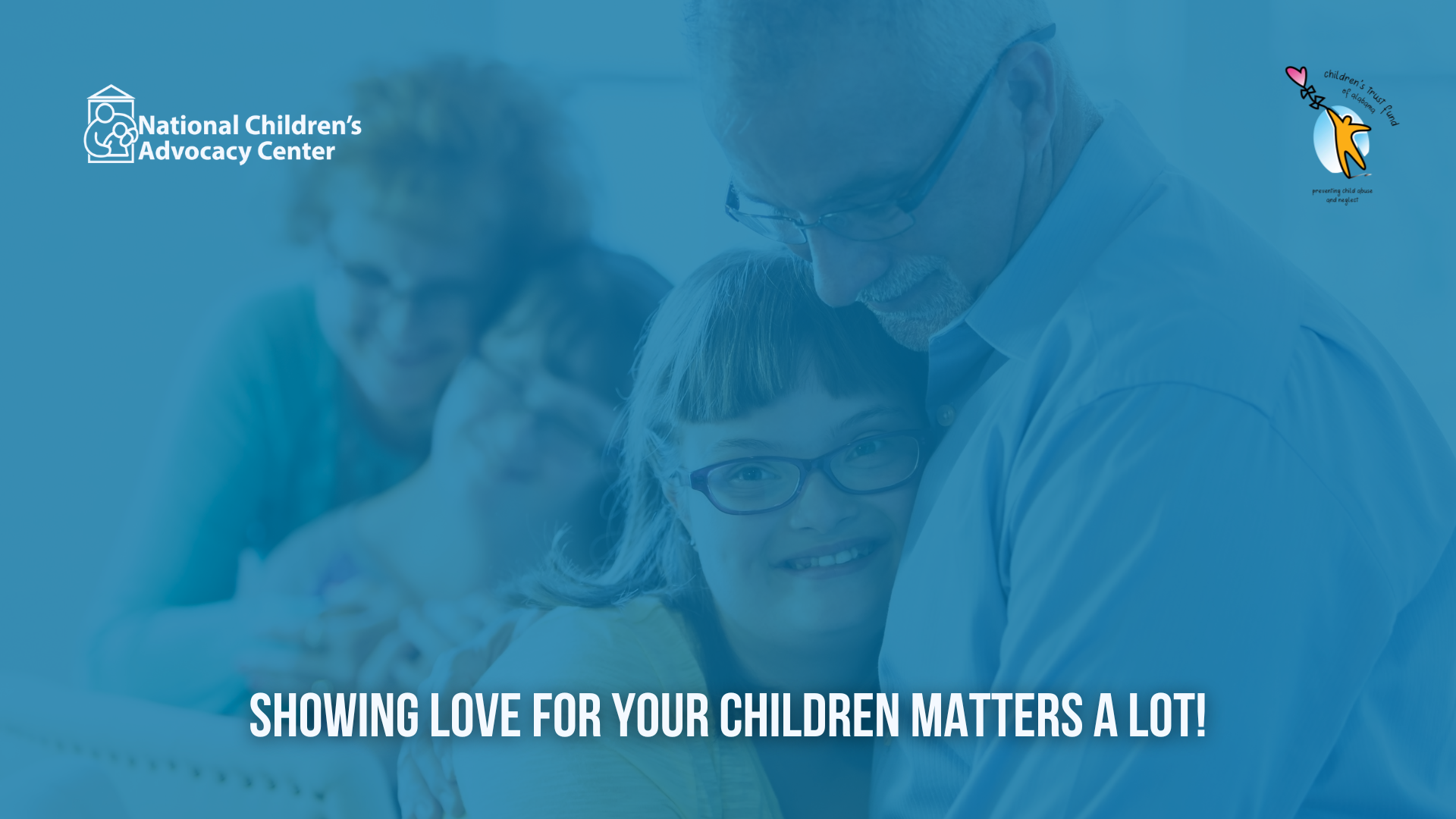
Write down one thing on the calendar that you can do each day to show your children how much they are loved.

With your help, your child’s brain can create up to one million neural connections per second. Copying games help build imagination and empathy. Naming games help develop vocabulary and attention. Favorites like peekaboo help with memory and trust. Playing these games is fun for you both. And it helps build your child’s brain so they can reach their potential later in life.
